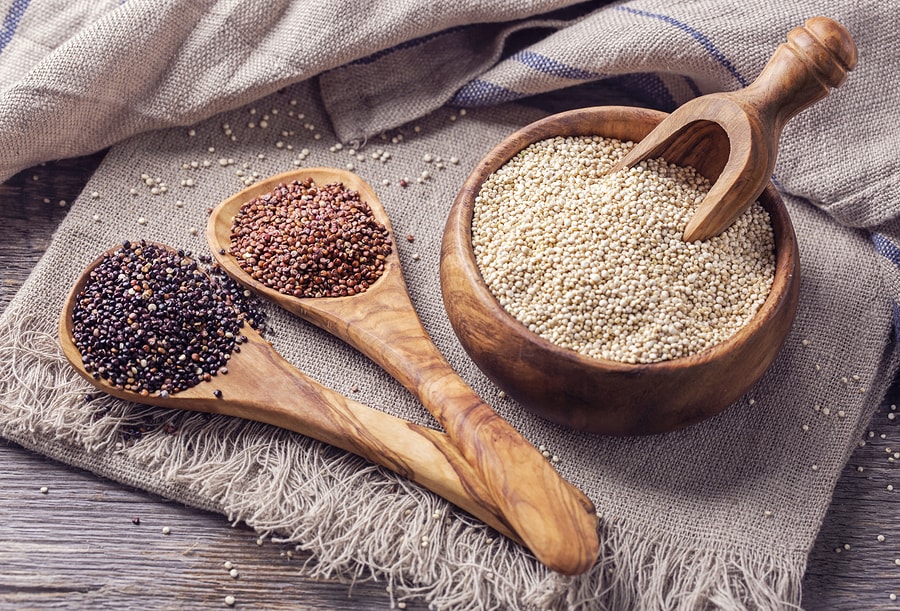Nothing makes cooking healthy meals easier than having nutritious pantry staples in your kitchen. Many whole foods that are rich in protein, fiber, healthy fats, and important vitamins and minerals can be thrown into a meal to make it more filling and satisfying. There's no need to follow a complicated recipe or spend hours in the kitchen. Many healthy pantry staples don't even have to be cooked.
To help you stock up a healthy pantry, let's take a look at four nutrient-rich foods that can be incorporated into a variety of meals:
Avocados
Avocados are nutritional powerhouses that are high in vitamin C, vitamin K , folate, and potassium. They also provide vitamin E, riboflavin, vitamin B6, magnesium, copper, and manganese, and are an excellent source of fiber and healthy fats, such as omega-3 and omega-6 fatty acids. In addition, a single avocado can contain about four grams of protein, depending on its size. The combination of fiber, fat, and protein makes avocados very filling.
To soften unripe avocados, leave them at room temperature for a few days. Ripe avocados can last well in the fridge for four to five days. Consider adding a few slices to a black bean soup, a salad, or a homemade salsa. You can even mash a soft ripe avocado with a fork to make guacamole or spread it over toast for breakfast.
Almonds
Almonds are high in vitamin E and manganese, and also contain riboflavin, magnesium, phosphorus, and copper. An ounce of whole almonds provides about six grams of protein, three grams of fiber, and 14 grams of fat that include heart-healthy monounsaturated fat and essential omega-6 fatty acids.
When shopping for almonds, look for raw whole almonds because they don't have any additives, such as salt or fat, and haven't been processed as much as roasted or crushed almonds. You can always roast or chop them at home as needed.
Pair a handful of almonds with fruit, such as an apple or banana, for a balanced and filling snack. Almonds are also perfect for breakfast—just add some chopped almonds and berries to plain yogurt or sprinkle them over your morning oatmeal. If you have a food processor or a high-quality blender, you can even make homemade almond milk or whip up a batch of your own almond butter.
Black Beans
Black beans are high in folate, iron, magnesium, phosphorus, manganese, and they also contain zinc and copper. A cup of cooked beans provides about 17 grams of fiber and almost 15 grams of protein.
You can buy dried or canned black beans. While dried black beans are delicious, you have to plan ahead if you want to cook them because they need to be soaked overnight and then cooked for one hour. Canned black beans are a good alternative to dried beans. They are simple to store and very convenient when you want to quickly make a healthy dinner.
You can add black beans to soups and stews to make them more filling, or put them in salads and salsas. Black bean dip is also easy to make and can be served with sliced vegetables or added to wraps and sandwiches.
Quinoa
Quinoa is rich in magnesium, phosphorus, manganese, and also provides thiamine, riboflavin, vitamin B6, folate, iron, zinc, and copper. A cup of cooked quinoa contains nearly four grams of fiber and about eight grams of protein. Because it contains essential amino acids, quinoa is considered a complete protein.
The most popular variety of quinoa available in stores has an off-white color, and you can find red, black, and tricolor quinoa, as well. Quinoa lasts well when stored in a cool dark place, and you can store it in the fridge to extend its shelf life.
Cooking quinoa is as easy as cooking rice. Due to its mild flavor, it can be added to almost any dish instead of other grains. It can be used in soups, pilafs, stews, salads, chili, and even served as a morning cereal with fruit, nuts, and natural sweetener. Cooked quinoa can also be frozen quite successfully.
As you can see, nutrient-rich pantry staples are readily available, and easy to store and use. To make sure you always have a variety of healthy foods to choose from, stock up on produce, nuts, beans, and whole grains, and add them to your favorite meals as often as possible.
